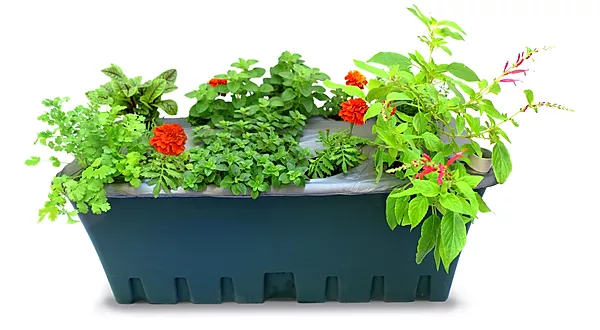Lessons from starting a small business in lockdown
As much of the economy shut down due to coronavirus, I had a bit of extra time to explore some different things. So in March, working alongside my neighbour Jonno, we launched a small business called OurFarmBox.
OurFarmBox makes it easy for families to grow their own organic vegetables, which in a time of lockdowns makes sense for a number of reasons. Basically, you can order one of these specialised boxes and it comes with everything you need – including detailed instructions – to get started. For people like myself, who have tried (and failed) to grow their own vegetables before, it makes the process very straightforward.
In my last interview with Edward Slack, he talked about the advantages and disadvantages of switching industries – this is important for both employees and employers. While I might not have switched industries, being involved with starting a business reminded me of a few key things.
These are:
- Understand your skills and weaknesses
- Find people who can plug those holes
- Motivation is key
Understand you skills and weaknesses
In any job, but particularly in a small business where roles may be varied, you’ve got to know what you’re good at and what you’re not good at. There are a couple of things I’ve really enjoyed doing throughout my career. The first is talking to people and learning about what they do, the second is growing businesses.
When thinking about starting a business, I spent some time evaluating my skills. My competitive advantage is that my network is really strong. I’ve spent 30 years building that up in Sydney. So I sensed I could tap into that network and build a team with that, but I needed other expertise on something else.
I knew from talking to Jonno that he’s a qualified botanist and had worked on the development and release of a farm box product several years ago in Africa. He knows how to optimise plant growth and had a solid business model to build from. It was easy to go have a chat to him and say, “I know five years ago you knew there would be a demand for the product in Australia, but the timing was off. I think the timing could be perfect now.”
Obviously during lockdown with food shortages starting to occur, it seemed like the timing was right. Food security was a growing issue and people wanted the opportunity to spend time with their kids growing something.
Find people who can plug the holes
With Jonno and I, we had the technical expertise and a solid network of people to reach out to. I knew from my list of strengths and weaknesses, the details of the day-to-day were not going to be something I was able to contribute as much to. I’m more of an ideas person than a perfectionist.
So the next thing we did was reach out to Andrew. I met him more than 20 years ago when he worked at C.R. Bard. He went on to work as CFO at a company that makes water tanks, then started his own company. I met up with him last year for a coffee and he said he was looking for opportunities to mentor small businesses. Andrew, being a chartered accountant, loves the detail.
Now we’re entering phase 2 of OurFarmBox and it doesn’t really need me as much – we’ve got people helping with social media, design, PR and so on. And Jonno and Andrew are handling all the digital analytics as well as the sales and marketing.
Motivation is key
As I’ve chatted about in a couple of articles, increasingly we’re seeing that the younger generation are far more interested in working for companies that are doing social and environmental good.
But I don’t think it’s just the younger generation and this has been a big help when it comes to OurFarmBox. We get the warehouse and the office space from a friend who runs a local coffee shop. I went and said thank you to him the other day, because he’s giving us the space for free. He said, ‘Don’t worry about it, it’s not like you’re selling cigarettes.’
Not selling cigarettes may have been a very dry way to look at it. 20% of the profits go to providing boxes to marginal communities who need them most.
So, we genuinely feel like we have the opportunity to do something good here. We’d love to one day be profitable enough to supply boxes to remote Indigenous communities and then in South Africa.
I’m excited and passionate because the end goal, if we can achieve it, would be an incredible legacy. And this excitement has been key to being able to bring more people into the business to help do things like store stock and build the website.
What next?
As the economy returns to normal and my work life is going back to what it was before coronavirus, it’s been good to have a reminder of how helpful these principles are for business of all sizes.
One of the first stages of recruitment is identifying what you’re lacking, or, in a slightly nicer way, what it is you need. To do this successfully you’ve got to be familiar with your current weaknesses. This is true at a team and individual level.
When you have this, you’re in a much better place to find the right people who can drive your business forward and help you achieve your goals.
Finally, you want a message that’s not only going to attract people to work at your business, but also keep them motivated over time.
If you’d like to have a confidential discussion about how to find the right people who can help build on your team’s strengths, contact Phil Davis, Managing Director, Q Consulting Group 0404 803 609 or phil.davis@qconsultinggroup.com.au
And if you feel like growing your own veggies, take a look at OurFarmBox.

